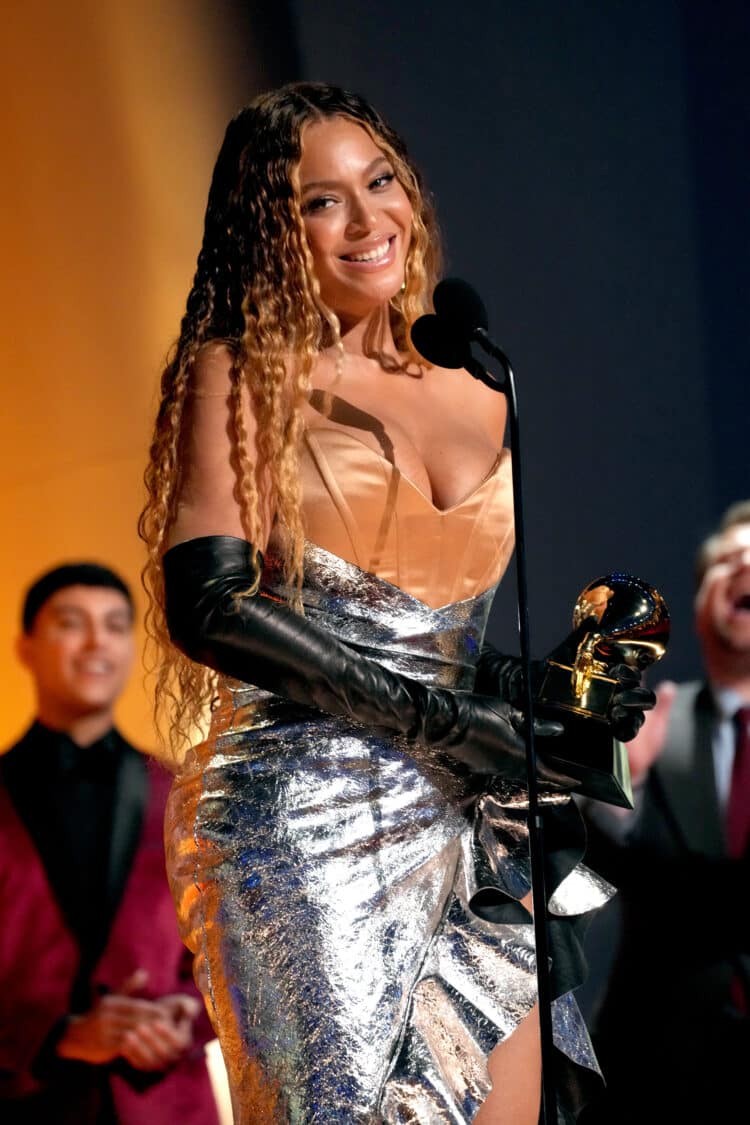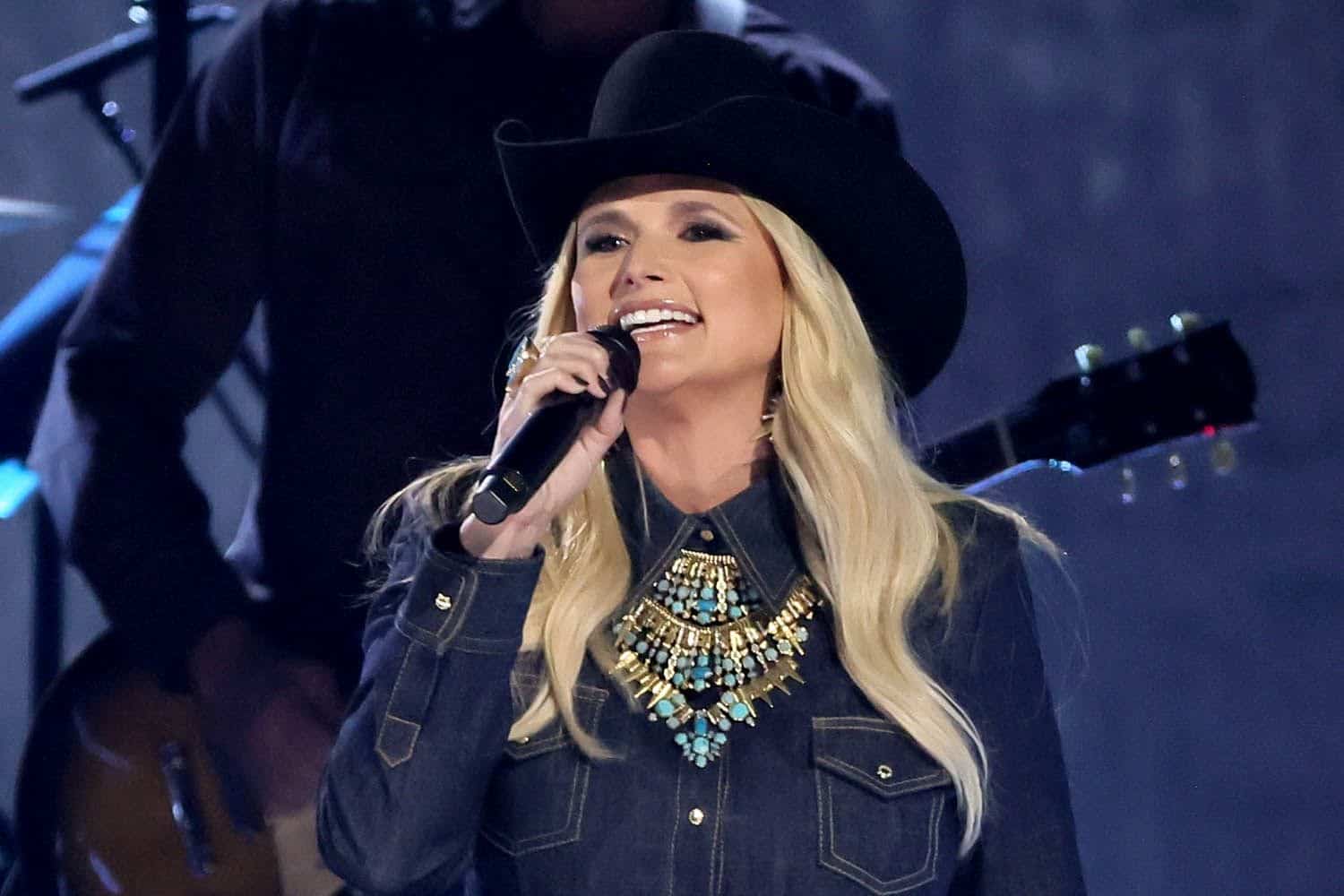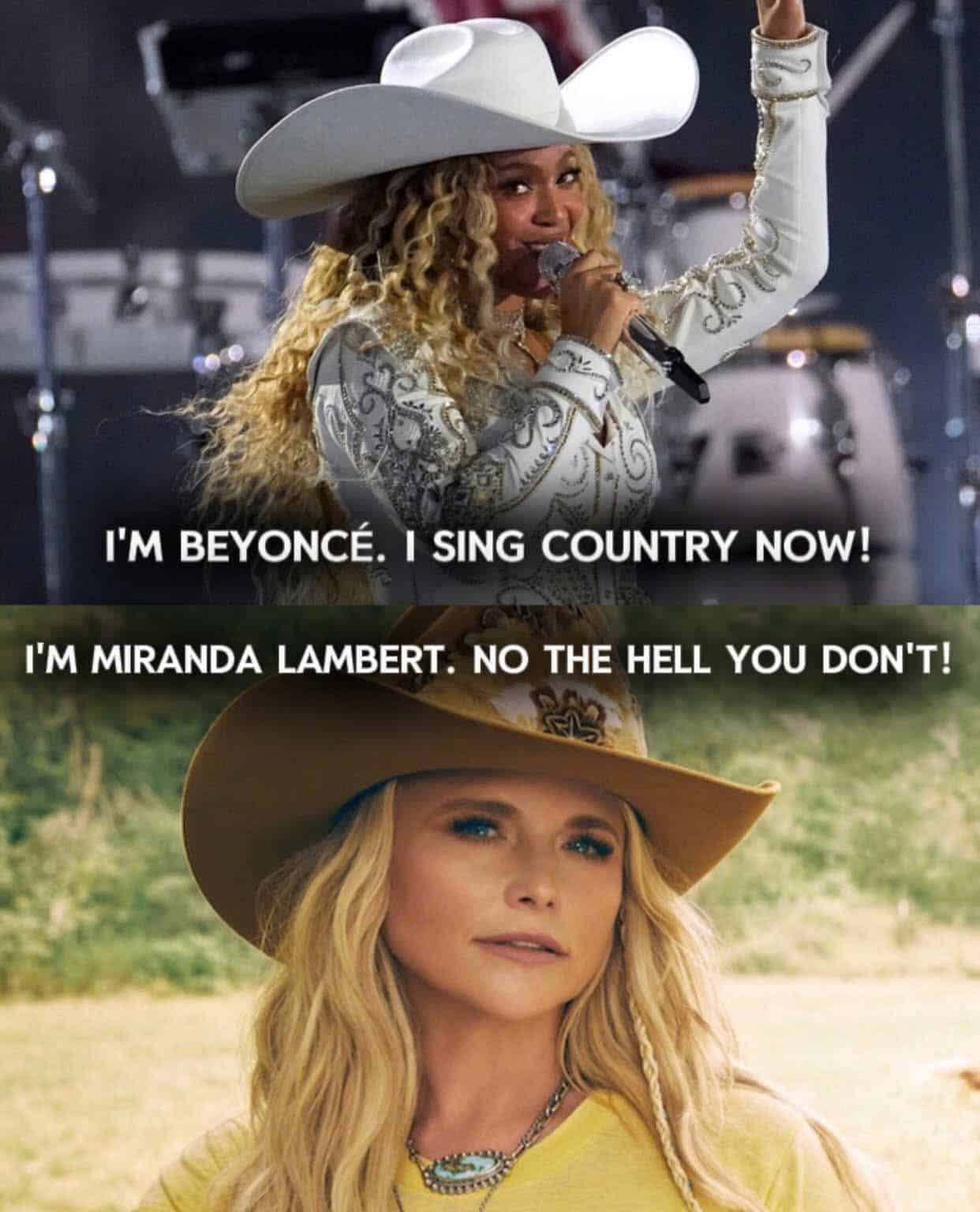For decades, country music has wrestled with questions about identity—who belongs, who doesn’t, and what happens when the genre’s borders blur. Recently, that debate found new life in a playful meme making the rounds online. The image shows Beyoncé wearing a white cowboy hat with the caption: “I’m Beyoncé. I sing country now!” Just below, Miranda Lambert, also in a hat, fires back with a defiant reply: “I’m Miranda Lambert. No the hell you don’t!”

It’s all in good fun, but the joke reflects something deeper: the ongoing tension between country’s long-standing traditions and its willingness to embrace outsiders who test the genre’s limits. At its heart, it asks a simple but powerful question—who gets to decide what counts as “real” country?
Beyoncé’s Brush With Country
Beyoncé may not be the first name that comes to mind when you think of country stars, but she’s no stranger to the genre’s storytelling roots. In 2016, her groundbreaking album Lemonade featured the track “Daddy Lessons.” Built around acoustic guitar and handclaps, the song tapped into themes of family, resilience, and Southern grit—core ingredients of countless country classics.
Later that year, Beyoncé performed the song alongside The Chicks at the Country Music Association Awards. The performance was electrifying and controversial in equal measure. Some praised it as proof of country’s ability to expand and evolve, while others dismissed it as an intrusion. The debate intensified when the Grammys rejected the track’s submission in the country category, underscoring both the possibilities and the resistance that surface whenever outsiders test country’s boundaries.
 Miranda Lambert: Holding Down the Fort
Miranda Lambert: Holding Down the Fort
If Beyoncé is seen as the genre-bender pushing on country’s edges, Miranda Lambert represents its beating heart. Since bursting onto the scene in the mid-2000s, Lambert has carved out a career built on raw honesty, southern storytelling, and a perfect mix of grit and tenderness. Hits like “Gunpowder & Lead” and “The House That Built Me” have cemented her place as one of country’s most authentic voices.
With her Texas roots and Nashville credibility, Lambert rarely faces the kind of scrutiny Beyoncé encountered. Instead, she is often viewed as an anchor—someone who keeps the genre grounded in its traditions, ensuring it doesn’t drift too far from its roots.
Tradition vs. Experimentation
That’s why the meme resonates. It exaggerates the contrast between Beyoncé’s star-powered crossover appeal and Lambert’s deeply rooted authenticity. The imagined back-and-forth captures both the humor and the underlying tension in country music: how to balance innovation with preservation.
But genres aren’t fixed fences—they’re more like porous boundaries. Beyoncé’s “Daddy Lessons” didn’t suddenly make her a country artist, but it demonstrated how the genre’s themes and sounds can connect far beyond its traditional borders. Likewise, Lambert’s work shows why the core of country remains powerful—because it continues to echo with history, place, and identity.

A Conversation That Keeps Country Alive
What the meme really underscores is not division, but dialogue. Country music has always been shaped by a push and pull between tradition and reinvention. From its Appalachian roots to its modern stadium anthems, the genre has thrived precisely because of this tension.
Beyoncé’s experiment highlighted country’s ability to spark conversations outside its own circles. Lambert, on the other hand, reminds fans why the genre’s legacy still matters. Together, they illustrate the dual forces that keep country vibrant: a respect for where it came from, and a willingness to see where it might go.
At the end of the day, the meme may be funny, but it also captures an essential truth—country music isn’t just one thing. It’s a living, evolving conversation, with room for tradition, experimentation, and everything in between.






